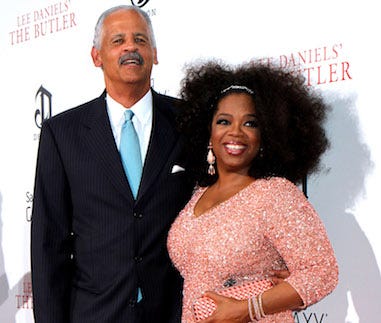
Family Relations in a Digital World
Recently a couple who’ve been together four years and are now separated came in for an assessment, and the girlfriend had her arms crossed and was glaring at him out the corner of her eye.
”I’ll be thinking everything is wonderful in our relationship, and then he’ll send me a text blasting me and telling me how unhappy he is. It’s totally out of the blue and it freaks me out!”
I look over at her boyfriend and he says, “I hold it all in until I can’t take it anymore, and then I just don’t have the courage to tell her how I feel, so I text her.”
Good God, people! Could you be handling your relationship business any worse? Unfortunately, this couple is not unusual at all. The problems in this short scenario are:
- Storing up issues and not dealing with them individually as they come up.
- Using technology to communicate issues with your partner instead of a face-to-face conversation.
The new world of technology has changed relationships and has brought a whole new set of concerns for American families. In the old days we had to talk to our partners either face-to-face, answer a phone or write a note. Then came the fax machine, followed by caller ID, voice mail, cell phones, email, Facebook, Twitter, video conferencing, texting and more to get the communication job done. What I tell my clients is, if you live in the same town and are going to have any sort of serious conversations with your significant other about your relationship, face-to-face is the only adult way to do it. The rest of the technological advances should be used regarding mundane details and logistics like what time to pick up the kids and funny and flirty thoughts and ideas.
One of my favorite ways to communicate with my husband is through text, for example. I might tell him I’m going to be late from work or that the dog needs to be let out. I might send him a pic of a beautiful landscape, a funny or exasperating situation I’ve seen, a link to something interesting or a smiling selfie saying, “I’m thinking of you!”
Keep in mind that as your partner goes about their day, a text or email message or public statement on Facebook needs to be something that produces logistics information or neutral or positive thoughts and ideas. Far too many people use texting and email to bring up disappointments and to start or continue a fight, and use Facebook as a dumping ground for their personal problems. Why? Because they don’t have the patience to wait, nor the guts to do it face-to-face. My opinion is that if you don’t have the courage to take on difficult conversations in person like an adult, you are too immature to be in a relationship. And yes, most people are too immature to be in relationships. That is why so many people are unhappy, and so many people get divorced.
With that in mind, I’d like to list some things we should never-ever send by text or email, or post in or to any other electronic method:
- Lewd, nude, or X-rated photos of ourselves or anyone else, or that demeans them in any way. First of all, why would you want a digital record of nudity anyway? Second, this may be used against you later. It’s always best to keep your side of the road clean!
- Anything that would embarrass someone. No one needs to be made uncomfortable with inappropriate content, so don’t do it. As a good example, in 2013 Irish golfer Rory McIlroy broke off his engagement to Danish tennis star Caroline Wozniacki when she posted a photo on Twitter of him sleeping with his mouth open. https://goo.gl/xh1f7m
- Anything that is preachy or judgy or meant to instruct or teach someone a lesson, or show them how to be a better peson, without their invitation or permission. This is a terrible thing to do no matter how you deliver it.
- Any serious earth-shattering news regarding your relationship that even your partner doesn’t know and doesn’t want known such as, “I want a divorce,” or “I am pregnant with Jeffrey’s child.” If what you have to say will be distressing, you need to keep it in the family.
- Absolutely do not fight electronically. Things such as what angered, frustrated or disappointed you in your significant relationship or any relationship, such as, “I am really mad about how you behaved in front of my boss last night,” or “My Aunt Sue will pay the price for what she has done!” should be dealt with person-to-person, face-to-face or not at all.
- Anything you don’t want kept on permanent record that could be used against you.
- When it comes to technological communication, do unto others as you would have done to you.
The idea is for all of us to get along in a (new) world where messages and postings stay around forever. If you send a nude photo of yourself at age 19 for grins to your friends, know that it may be an obstacle to getting that job you long for at age 34. As you email, text and post, leave a positive and respectful digital trail, and if you’re upset with someone, call them up and ask to meet for coffee so you can deal with it head-on, or leave it be. Set your intention to be a person that exhibits maturity, human decency, and compassion toward yourself and others.
Originally published at doctorbecky.com on October 14, 2016.





 Becky Whetstone is an Arkansas native and has a Ph.D. in Marriage and Family Therapy from St. Mary’s University in San Antonio, Texas. She is a Licensed Marriage and Family Therapist (LMFT) in Texas and Arkansas.
Becky Whetstone is an Arkansas native and has a Ph.D. in Marriage and Family Therapy from St. Mary’s University in San Antonio, Texas. She is a Licensed Marriage and Family Therapist (LMFT) in Texas and Arkansas. 





















































































































